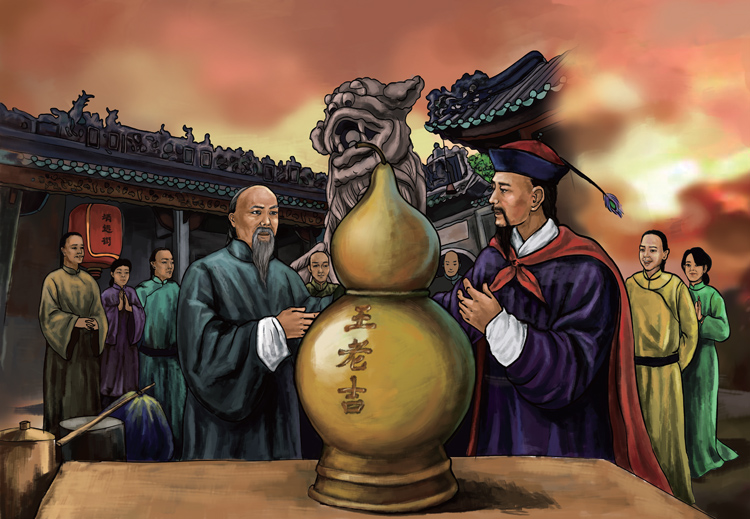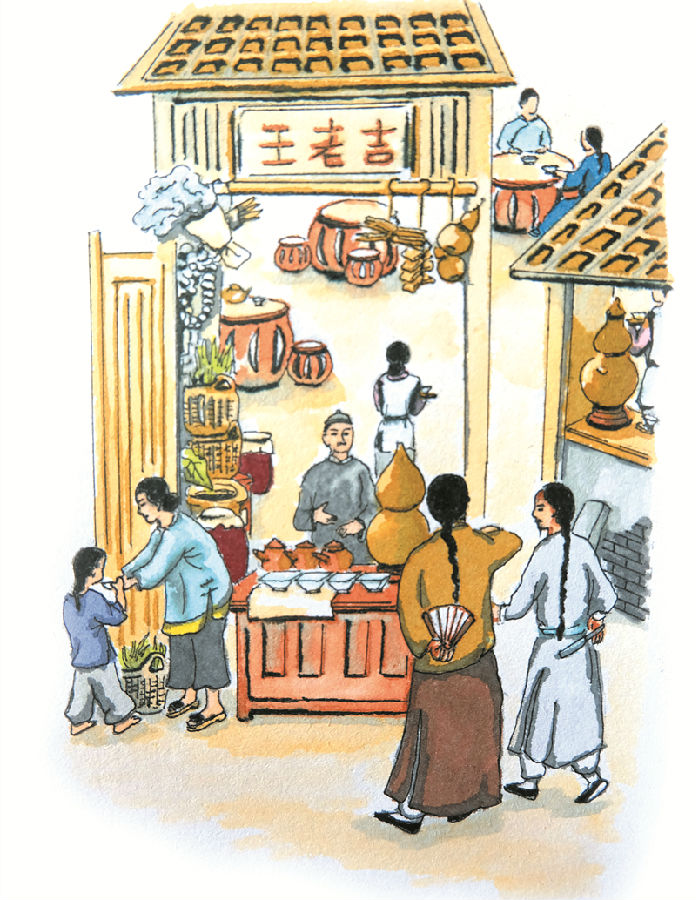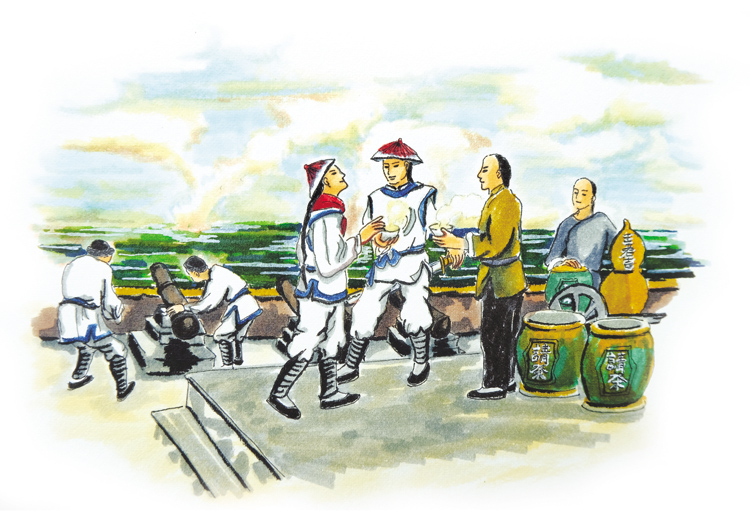The Name Wanglaoji Given by Lin Zexu
2017-08-30 15:52:27 GPHL GPHL

Lin Zexu sent a big gourd-shaped copper teapot with three gold letters "Wanglaoji" on it.
Herbal tea is the product of the special geographical environment in Guangdong, which is basically cooked through boiling cold and clearing heat-toxin Chinese herbal medicine. Guangdong belongs to tropical and subtropical region where bacteria easily grow in this moist and hot situation, therefore miasma and plague frequently appear here.
In the ancient time when Chinese technology was relatively backward and Guangdong was not well known, Guangdong was considered as a waste land to be fit for exiles obtaining penalty. It shows how particular the environment of Guangdong is. However, according to experience and wisdom handed down to them from ancestors, Guangdong local residents summed up a set of ways to protect themselves - regularly drinking herbal tea to clear heat and eliminate dampness.
In the tree of many herbal tea brands, Wanglaoji herbal tea is the one branch, becoming the only national drink capable of rivaling Coca-cola in China. Many celebrities ever left indelible marks on its development history, such as Lin Zexu, Liang Qichao, Deng Shichang and etc. Especially Lin Zexu gave it the name Wanglaoji personally, leaving behind a legend.
Wang Zebang, born in Heshan County of Guangdong, was given the secret recipe of herbal tea by the mysterious Taoist priest who saved his life in the early 19th century. Wang Zebang, whose nickname is Aji, arrived at Jingyuan Street in the Thirteen-hong of Canton, and set up a shop to sale "Uncle Ji" herbal tea in Qing Dynasty Daoguang 8 (AD 1828) with greater prestige.

Under the emperor's order, Lin Zexu, Hu-guang Viceroy, headed down south to ban opium in 1838. Nevertheless, he rushed through the day so much that his body got heatstroke. Even though he asked almost all of famous doctors in Canton, his illness was more serious and he would have to go back to Beijing.
Fortunately, his suite found, on further enquiry, that Wang Zebang was good at curing heatstroke. After visiting Wang's home, it was just three cups of herbal tea that solved Lin's problem. When Lin Zexu felt refreshed, he came to acknowledge Wang Zebang and said: "You practice medicine honestly, and you sale effective drugs on lower price. Since your family name is Wang and nickname is Aji, your herbal tea could be named 'Wanglaoji' from now on."
Presently he sent a big gourd-shaped copper teapot with three gold letters "Wanglaoji" on it. After then on, Wang Zebang made "Wanglaoji" as his shop's formal title. Lin Zexu pressed on with banning opium for several months, finally leading to opium's being destroyed on Humen Beach on 3 June 1839, and then Chinese people devoted themselves to get rid of the stigma "Sick Man of Asia".

Henceforward, Wanglaoji was closely bound up with Chinese national destiny. Because British military waged the First Opium War on the pretext of opium's being banned, Emperor Daoguang issued the war declaration against British and immediately transferred Xiangfu, Hunan Admiral, to reinforce the front line in Guangdong. When Hunan soldiers arrived in Guangdong, they found themselves in an unaccustomed climate, so many of them became ill.
With the news heard by Wanglaoji, his heart was full of the feeling "country in trouble or alive", and he promptly transported all ingredients of herbal tea to the front line in Humen that very night. In the next few days, he commanded villagers to boil herbal tea in several big copper pots for soldiers, and finally resolved the crisis with his herbal tea. He then customized dozens of ceramic tea urns named "Asking for tea", and distributed them to soldiers in Humen and Huangpu, so they could drink herbal tea at any time, while leaving standby "Asking for tea" tea urns in his shop just in case.
Wang Zebang acted with compassion as Lin Zexu had hoped, stepping forward when the nation was in peril time. If there had been not "Wanglaoji", Chinese modern history and Chinese nation struggle history would be changed. Not only did Wanglaoji take righteousness as roots, but also did he have humanistic spirit. As written in by Xi Guan Lao Ren in 1980s, Wanglaoji ever had the unwritten store regulation that sick persons can drink herbal tea in Wanglaoji Shop for free.
Therefore, the Canton people's catch phrase ,"Wanglaoji is honest with customers", is passing unto today after years. In 2010, Wanglaoji's assessed value was 1080 billion yuan, which shows that Wanglaoji set sail from its abundant economic base as the number one national brand in China.

